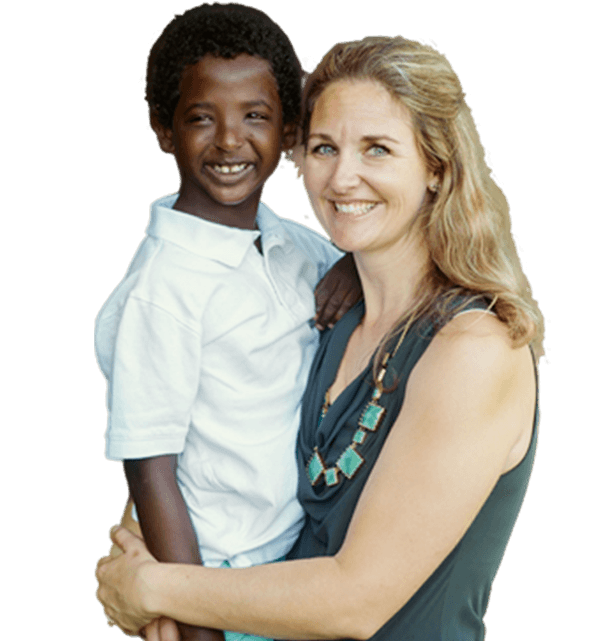

Meredith's story
In January 2010, Meredith McCumbee and her husband traveled to Addis Ababa, Ethiopia, to bring home their son, Aaron, and expand their family to four. When Aaron came home, he was five and a half months old, but had only two months of medical records. From the first moment Meredith met Aaron, she knew that the parenting journey she had experienced up until that point was suddenly taking a different direction.
The first two years with Aaron at home were an intense medical journey. He was diagnosed with trachea, laryngeal and bronchomalacia. His airway was incredibly sensitive, and his breathing was labored and noisy. He had chronic pneumonia and was hospitalized multiple times due to complications with his airway. He had swallow studies, bronchoscopies, endoscopies, EEGs, sleep studies and almost weekly lab draws within those first two years. Shortly after his first birthday, he had his tonsils and adenoids removed and was diagnosed with a chronic rare inflammatory disease of the esophagus. With treatments, hospitalizations and adjustments that included thickened liquids and diet modifications, Aaron started to stabilize.
As the family came up for a breath of air, they shifted their focus to the developmental delays Aaron was experiencing. At 18 months old, he was diagnosed with childhood apraxia of speech. As he continued to grow, behavioral challenges and learning differences became more prevalent. When Aaron was four and a half years old, he was diagnosed with autism.
Meredith says the autism diagnosis was hard to grasp. Their medical team couldn’t seem to answer questions they had: What would the rest of the journey look like? What does Aaron’s future look like? What therapies or treatments are available?
Almost five years later, she and her family still have many of the same questions about Aaron’s ongoing medical needs and his autism diagnosis. Most recently, Aaron was diagnosed with a movement disorder that affects his sleep, causing twitching and jerking movements during the night. This greatly impacts his ability to get restful sleep, leading to other complex behavioral issues.
There have been times when the family wasn’t sure how they’d be able to manage Aaron’s care because he needs constant supervision: “We’ve been fortunate to have amazing support from the Autism Society of North Carolina,” Meredith says. “That group has helped us understand Aaron’s behaviors, helped us increase his functional communication, provided respite care and other support and, importantly, has been a listening ear.”
Though Aaron hasn’t participated in clinical trials to date, Meredith, who is currently a senior director for the clinical transformation team, remains excited about the decentralization of clinical trials.
“The work we do at PPD across the board is tremendously important in getting new medicines to market,” she says. “I am especially excited about the company’s focus on digitally enabled and virtual trials. I know new approaches like these could open doors for Aaron to participate in clinical research and provide us more options for his treatment in the future.”